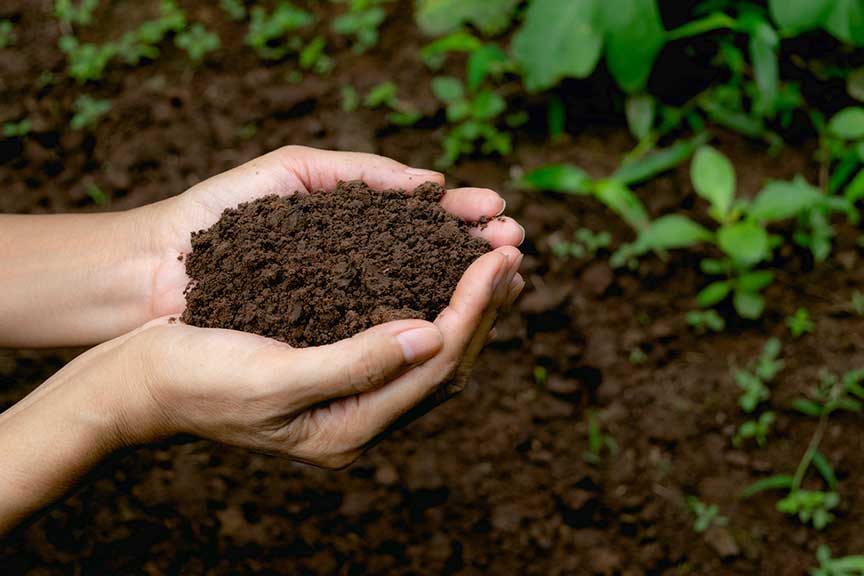Kansas State study finds: Treating soil with organic fertilizers leads to more carbon storage

Published: October 11, 2024
Category: Organic News
As climate-related events become increasingly common and destructive, the urgency to find ways to capture carbon is ramping up. Kansas State University scientists recently studied the impact of different farming practices on carbon storage, concluding that soil management practices using manure/compost fertilizers store more carbon than soil treated with chemical or no fertilizer.
“We were trying to understand what the mechanisms are behind increasing soil carbon storage using certain management practices,” says Dr. Ganga Hettiarachchi, professor of soil and environmental chemistry at Kansas State University. Scientists examined not just soil carbon but other minerals that facilitate carbon storage.
Using the Canadian Light Source (CLS) at the University of Saskatchewan and the Advanced Light Source in Berkeley, CA, they looked at soil from a Kansas cornfield using no-till for the past 22 years. Soil receiving manure or compost treatments stored significantly higher carbon volume than soil treated with chemicals or no. Additionally, microbial carbon was found in soil treated with manure or compost, implying presence of more micro-organisms (greater diversity).
“To my knowledge, this is the first direct evidence of mechanisms through which organic enhancements improve soil health, microbial diversity, and carbon sequestration,” said Dr.Hettiarachchi. “Collectively, studies like this are going to help us to move forward to more sustainable, more regenerative agriculture practices that will protect our soils and environment as well as help feed growing populations.”
The study was published in Soil Science Society of America Journal.
Sources: Phys.org, Canadian Light Source
To view source articles, visit:
https://phys.org/news/2024-09-soil-fertilizers-carbon.html
Organic & Non-GMO Insights October 2024




